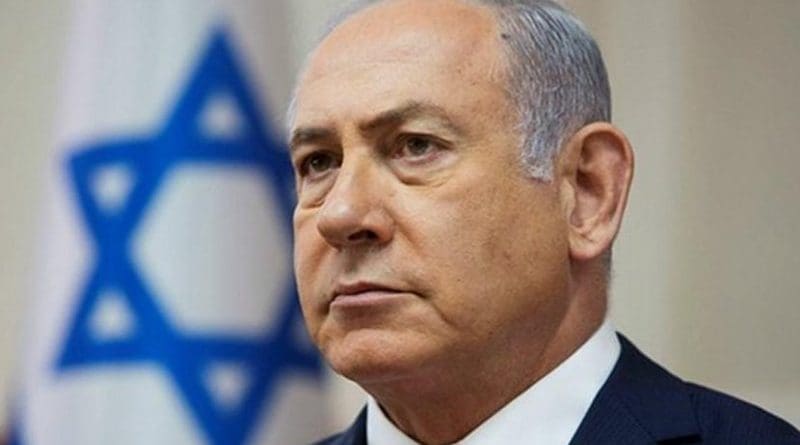Netanyahu’s Divisive Policies Unites His Foes, For Now – Oped
By Arab News
By Osama Al-Sharif*
It’s all about the numbers as rivals and allies in the Israeli political landscape make renewed attempts to clear the finishing line by reaching the magic number of at least 61 seats in the 120-seat Knesset. Prime Minister Benjamin Netanyahu was quick to celebrate what he called the biggest victory of his career as soon as exit polls predicted that his Likud party and its allied right-wing parties had secured 58 seats in last Monday’s elections. But, a week later, his chances of forming a government for the fifth time seem reduced. His trial for corruption, bribery and breach of public trust is due to start on March 17.
Meanwhile, his main rival, Benny Gantz, who heads a center-left coalition, is close to forming a government after securing the backing of the leftist Labor-Gesher-Meretz alliance and bowing to the conditions set by kingmaker Avigdor Lieberman. With the outside support of the Arab Joint List, which won 15 seats, making it the third-largest party, Gantz is now set to head the next government.
All of these parties have one thing in common, despite their ideological differences: To bring down a divisive and corrupt Netanyahu. But Israeli politics is unpredictable and one cannot discount last-minute surprises. Turnout in this third election within a year was high, at over 65 percent, especially among Arabs. Their vote was instrumental in limiting Netanyahu’s gains. Indeed, the Joint List is now the centrist bloc that is appealing to the growing number of Israeli voters who are fed up with the far-right’s monopoly and its divisive agenda. For his part, Netanyahu’s bid to attract deserters from the Blue and White coalition did not work. His coalition’s gains stopped at 58 seats.
Gantz’s coalition did poorer than expected, mainly because of his inability to draw any lines between his agenda and that of the Likud, despite his effort to position his coalition as a center-left bloc. He desperately needed the support of Lieberman, who had rejected joining an alliance with Gantz following last September’s elections. Now, with much at stake, no one is in the mood for a fourth election. The impasse had to end.
The fact that an alliance, albeit a loose one, is forming between Israel’s Zionist center-left and the largely non-Zionist Arabs is amazing in itself. Ironically, in his likely final act as a politician, Netanyahu was able to unite his foes and empower the Arabs against his own wishes.
Gantz and his new allies vowed to pass a law that would prevent an indicted politician from forming a government. That law targets Netanyahu, who, despite getting a major boost from Donald Trump and his controversial vision for peace, was unable to secure victory. In fact, it is believed that Trump’s plan was responsible for the high Arab voter turnout, which ultimately denied Netanyahu the premiership. One segment of the Trump plan suggested transferring more than 300,000 Palestinians living in the so-called Triangle to the proposed Palestinian state. That was believed to have been Netanyahu’s idea.
If Gantz is able to form a new government, with the backing from the outside of the Arab Joint List, then he has to differentiate himself from the divisive and racist discourse of Netanyahu’s far-right bloc. His position on Trump’s peace plan must be clear: That negotiation with the Palestinians is the only way forward. He had hinted, following the unveiling of Trump’s plan, that he would not make any unilateral moves without consulting with Jordan and the Palestinians. That was a reference to the annexation of the Jordan Valley, which would kill the two-state solution and threaten Israel’s peace treaty with Amman.
Unless he reverses or halts the Netanyahu policies of the last decade or so (expanding settlements and refusing to negotiate with the Palestinians) nothing will change on the ground and Israel will find itself facing a new reality: That of a divided single state ruling over the Palestinians under an apartheid regime.
But let us not delude ourselves into believing that Gantz is another Yitzhak Rabin. He isn’t and one should take his possible overtures to the Palestinians with a pinch of salt. In fact, his minority government may fall apart as soon as Netanyahu is ousted forever. For now, Netanyahu is the glue that holds this unpredictable alliance together.
Palestinian President Mahmoud Abbas must be ready to engage with Gantz in a bid to revive the stalled peace process and deflect attention from Trump’s plan. He must present fresh ideas to counter Trump’s proposals. He would be wise to learn from Israel’s Arabs and move quickly to reconcile differences with Hamas in Gaza. The latter has failed to honor commitments under a number of understandings reached with Fatah in the past. The timing for the Palestinians and their cause has never been more crucial.
- Osama Al-Sharif is a journalist and political commentator based in Amman. Twitter: @plato010

